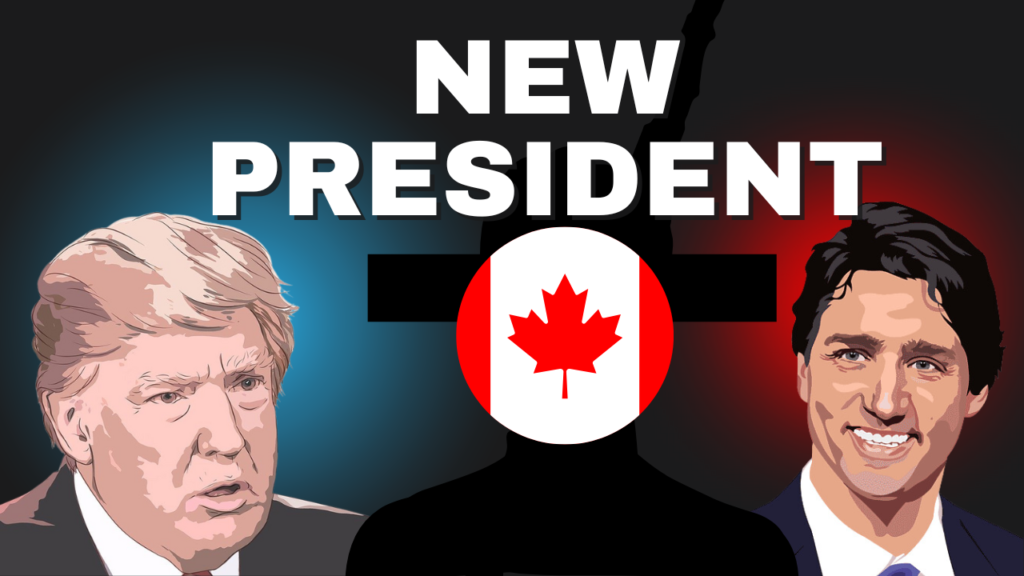Trudeau Resigns : In a dramatic political development, Canadian Prime Minister Justin Trudeau has decided to step down from his role after leading the country for nearly a decade. Trudeau Resigns: Adding an unexpected twist to the day, former U.S. President Donald Trump proposed the idea of merging Canada with the United States. Let’s break down these events and what they could mean. Trudeau Resigns

Why Did Trudeau Decide to Resign?
Justin Trudeau’s decision to resign comes amid growing challenges that have tested his leadership. Over time, his approval ratings have declined, and a combination of factors led to this turning point:
Struggling Economy
Canada’s economic troubles, including rising inflation and a worsening housing crisis, have left many citizens disappointed. These issues have created significant pressure on Trudeau’s government.
Internal Party Challenges
Trudeau’s Liberal Party has seen internal disagreements, with some members expressing the need for fresh leadership to address ongoing national issues effectively.
Public Concerns
While Trudeau introduced progressive initiatives during his tenure, public criticism over his management of protests and the pandemic has grown. This sentiment likely contributed to his decision to step aside.
Trudeau intends to stay on until his party chooses a new leader. Notable contenders for the position include Chrystia Freeland, the Deputy Prime Minister, and economist Mark Carney, both of whom bring unique strengths to the table.
Trump’s Vision: A United North America?
Just hours after Trudeau’s resignation, Donald Trump made headlines by suggesting that Canada and the United States should unite as one country. This bold statement has sparked widespread reactions.
Why Is Trump Proposing This?
According to Trump, merging the two nations could offer several advantages:
Economic Benefits
By removing trade barriers like tariffs and integrating the markets, both nations could see economic growth and reduced taxes, Trump claims.
Enhanced Security
Trump argues that a unified North America would be better positioned to tackle global challenges and strengthen its defenses.
Bold Leadership
Some view this proposal as a classic example of Trump’s attention-grabbing style, while others see it as a reflection of his unorthodox approach to international relations.
Mixed Reactions from Across the Board
Trump’s idea of a merger has drawn a variety of responses:
Strong Opposition in Canada
Most Canadians see the proposal as unrealistic and a direct challenge to their national sovereignty and cultural identity.
Support from Business Circles
Some business leaders, such as Kevin O’Leary, argue that a closer economic partnership could help struggling regions and improve financial stability.
Expert Opinions
Analysts agree that significant cultural, economic, and political differences between the two nations make such a merger impractical and unlikely.
What Lies Ahead for Canada?
As Trudeau prepares to step down, Canada faces a period of political uncertainty. The next Liberal leader will need to tackle critical issues like economic recovery, housing affordability, and restoring public trust.
Why These Events Matter
The resignation of a long-serving prime minister and the bold remarks from a former U.S. president highlight the interconnected nature of North American politics. While a U.S.-Canada merger remains highly improbable, these discussions bring attention to how leaders address pressing issues in their respective nations.
Moments like these spark conversations about the future of governance, economic strategies, and international collaboration. What’s your opinion on these developments? Do you see Trump’s proposal as a provocative idea, or is it simply a dramatic distraction?
see more new articles :- https://marketdarpan.com/nifty-sinks-below-23750-sensex-tumbles-800-points-whats-behind-the-market-turmoil/


